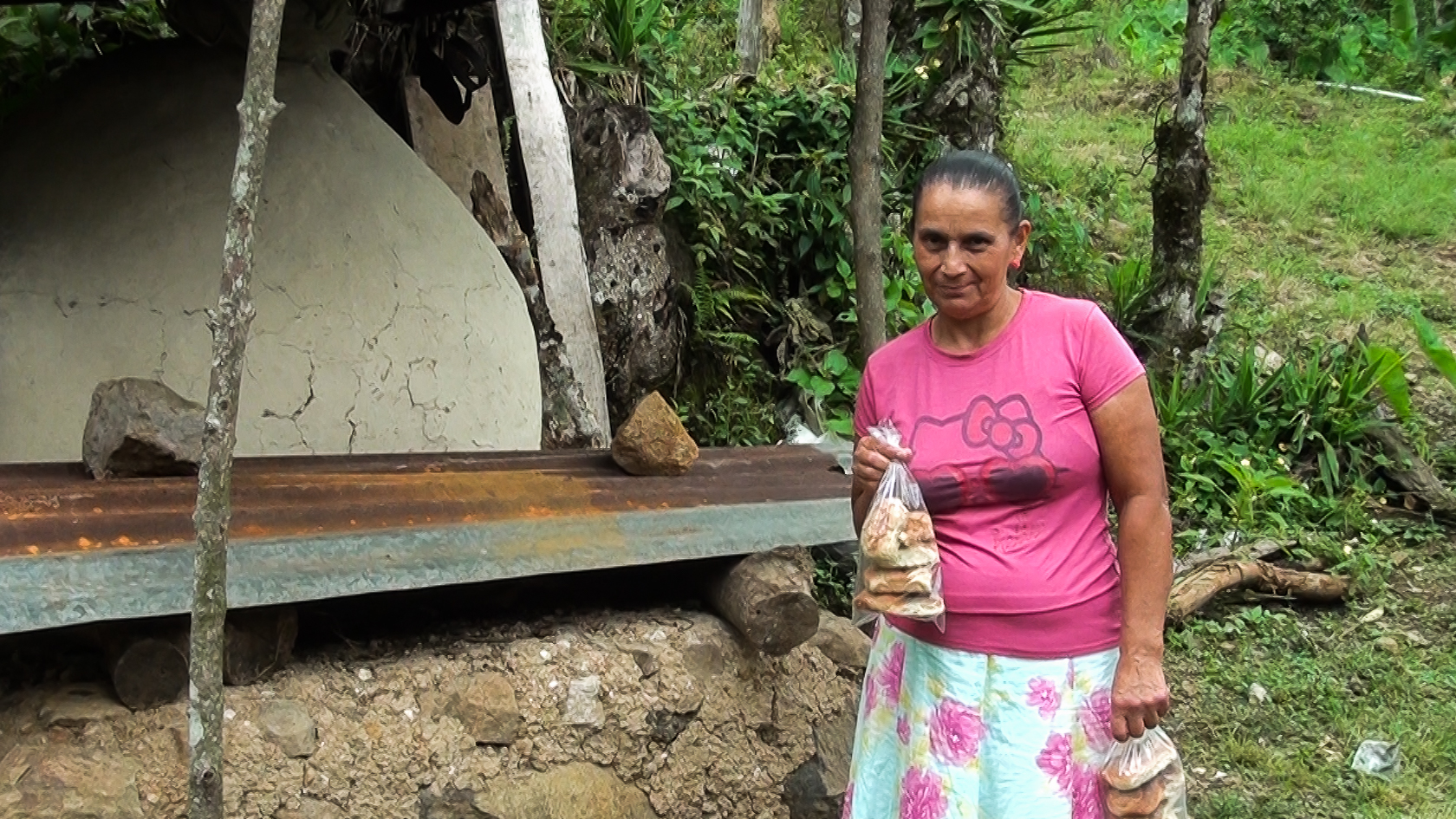Tackling disaster risks and climate change in Honduras: from reforesting to entrepreneurship
“I had never thought of myself as an entrepreneur, or that a profit could be generated from what I do just for my family. Now my life has changed. I feel independent and fulfilled.” Maria, from Santa Barbara, is one of thousands of people who have benefitted from the programme of the Italian Red Cross and Honduran Red Cross on disaster risk reduction and climate change adaptation.
Honduras is one of the most exposed countries to climate-related hazards worldwide: from hurricanes to tropical storms, floods, droughts and landslides. More than 40% of its population lives in rural areas, with 60% of them in poverty[1] – even extreme in the western part of the country.
The rural poor depend highly on rainfed agriculture as their main livelihood. Climate change has increased the frequency and severity of water scarcity and natural hazards, though, putting under further strain people’s capacity to address ongoing development challenges. These dynamics have had negative impacts on the country’s weather-dependent workforce and economy. Furthermore, they have triggered acute food insecurity, a rise in malnutrition rates and mass migration to poorly prepared urban areas, while increasing the spread of violence.
In response to this situation, since 2010 the National Red Cross Societies from Italy and Honduras have been cooperating on different initiatives as part of a comprehensive and multisectoral programme – the ‘Proyectos Reducción de Riesgos y Adaptación al Cambio Climatico or PRRACC (‘Disaster Risk Reduction and Climate Change Adaptation Projects’) – aiming to build resilient and sustainable communities in the Valley of Sula, North-West of the country. More than 67,700 people of 65 communities in rural areas have benefitted from the endeavour, actively involving 13 Local Councils and almost 1,000 Honduran Red Cross volunteers.
Over the years, the programme has successfully enabled reforesting activities within the forestlands of the mountainous in the region, with 1.5 million trees planted, alongside educational activities on sustainable agriculture and entrepreneurship.
Pig breeding, fish farming, horticultural and honey production are some examples of the diversified production through the programme, beyond the traditional coffee cultivation. Such endeavours have been essential in strengthening rural communities’ capacities to better face the shocks of climate change, and in promoting new livelihood opportunities and income-generating activities. Moreover, the positive impact of these activities on communities’ life has generated a virtuous cycle, with local authorities further investing and contributing to them. Since the beginning of the PRRACC programme, 12 local entrepreneurship initiatives have been initiated, basic equipment has been provided to develop new activities for sustainable development, and 28 eco-friendly waste management micro-projects have been carried out. Gender-responsive, the different endeavours acknowledge the key role of women and strive to create more opportunities for them outside the household environment.
The programme also includes health management capacity building: actions on water, sanitation and hygiene (WASH), vaccination, household conditions improvements, first aid courses and the training of volunteers in this field.
In addition, it has helped consolidate community structures for disaster preparedness and response, and reinforced their interactions with local institutions in the context of an integrated risk management approach. For this purpose, specific training has been provided to nearly 400 members of 13 Municipal Emergency Committees (CODEMs) and 2,410 members of 36 Local Emergency Committees (CODELs).

In 2019 and 2020, some activities of the PRRACC programme have been adapted to the dengue and COVID-19 health emergencies. The CODELs, for example, have played a crucial role in the distribution of food parcels, non-food items and hygiene kits in rural areas during the current pandemic, along with the preparation and logistic support for health teams in the field. At the same time, the Italian Red Cross has also contributed to biocontainment facilities and personal protective equipment (PPE) for local populations, to minimise the risks of infection and enhance case management.
The long-term bilateral cooperation between the Italian Red Cross and the Honduran Red Cross has allowed for the specialisation and professionalisation of different stakeholder groups, from staff and volunteers to local authorities and populations, now more efficient in reducing the main causes of vulnerability in a sustainable way. Likewise, investing in structural development at local level has led to significant changes in the life and work styles of the rural communities of the Valley of Sula, reinforcing their capacity to adapt to climate change consequences.
Maria, from Santa Barbara, supports her family in the coffee production and sale, for example, taking care of the grinding as well as the creation and labeling of coffee packages. Thanks to the training she received through the PRRACC programme, their daily bakery production has been transformed into a small confectionery business that produces cakes, bread and biscuits that are sold in the market.
Basic information
Activity name
Disaster Risk Reduction and Climate Change Adaptation Projects (in Spanish, Proyectos de Reducción de Riesgos y Adaptación al Cambio Climatico – PRRACC)
Country
Honduras
Duration
Since 2010
Partners
Italian Red Cross and Honduran Red Cross
URL
See here
Resources
See here

